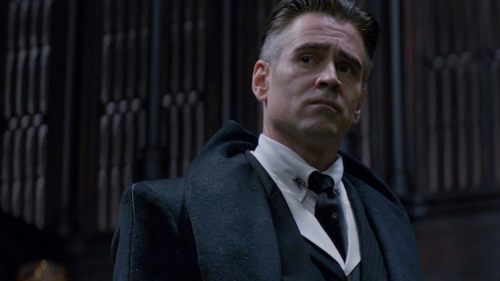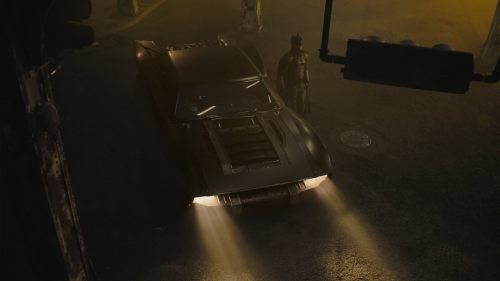WAR FOR THE PLANET OF THE APES Review: A Powerful Trilogy Closer
Note: This review was originally published on June 26th.
War For The Planet Of The Apes is now in Drafthouse theaters. Get your tickets here.
It occurred to me, midway through the brief text-screen recaps that open War for the Planet of the Apes, that 20th Century Fox’s new simian saga is the true heir to the studio’s original Star Wars trilogy, in terms of fantasy-film mythmaking. The subsequent Star Wars adventures, whatever their respective qualities, were all built directly on and within the foundations George Lucas established; the 21st-century Apes cycle has taken the very basics of its ’60s forebears and spun off its own, original and highly dramatic narrative.
Viewed this way, War, in terms of tone if not series placement, is the Empire Strikes Back of the Apes movies, plunging its characters and the audience into its deepest hearts of darkness yet. That’s an apt choice of words considering that the storyline carries strong echoes of Apocalypse Now, along with Spartacus. And in its story of “personal” quest and rebellion, it is actually a little less of a war film than its predecessor Dawn of the Planet of the Apes.
In the aftermath of Dawn’s events, apes and humans are still at odds, and an obsessive Special Forces colonel (played by Woody Harrelson and unnamed, unless you look closely at his uniform), has been tasked with putting down the ape “threat” once and for all. He himself doesn’t become a key figure in the movie for a while, though, as War is centered squarely on its non-human protagonists, their community and interactions. Both the CG technology and, even more crucially, the established individual personalities of these primates are strong enough that director Matt Reeves can create many compelling sequences populated entirely by digitally created, largely nonverbal characters. This may be the only megapicture in Hollywood history in which at least half the dialogue is conveyed in subtitled sign language, and Reeves doesn’t even show us all the hand gestures; he keeps his shots focused on the expressive faces of his ape protagonists.
Chief among them, of course, is Caesar, the chimpanzee leader once again enacted via a remarkable motion-capture performance by Andy Serkis. Still a figure of great empathy, he is now nonetheless hardened by the years of conflict with humans (and his experience with Dawn’s antagonistic Koba); he wants peace, but now more than ever is ready to wage war. While he goes through a great emotional journey over the course of the film, everything you need to know about this Caesar can be seen in the mix of regret and disgust on his face when he and his comrades have no choice but to shoot a man who threatens them.
Following an opening-act skirmish with major losses on Caesar’s side, he and that small group of companions set out on a trek to the Colonel’s stronghold—a mission not of negotiation, but of revenge. This is a more direct, straight-line story than that seen in the previous Apes films, building to the confrontation between the two enemies of different species, and it pays off handsomely. Harrelson really sinks his teeth into the Colonel’s maniacal villainy, while also, once he reveals what motivates him, finding the few tattered shreds of humanity left in the man.
This is not to say that there isn’t spectacle in War, but rather that the struggles are internal as much as external on Caesar’s part. The scope is lush, yet somewhat more limited this time, with the second half confined to the Colonel’s fortress, where he has put captured apes to work as slave labor. Nonetheless, whether within this structure or out in the wilderness, the environments have been gorgeously, meticulously evoked by production designer James Chinlund and his team and cinematographer Michael Seresin, whose rich and enveloping images are often breathtaking. Michael Giacchino’s varied and evocative music is another major asset, starting with a fun tribal take on the classic Fox fanfare.
Throughout, the scenario has been fully imagined by Reeves and co-scripter Matt Bomback, with its own vernacular (apes who have turned to the human side are known as “donkeys”) and deeply felt relationships between its characters. A few of the most moving moments belong to Maurice (Karin Konoval), Caesar’s wise, kind-eyed orangutan confidant, whose compassionate soul contrasts nicely to Caesar’s rage-scarred heart. Also offering a balance to the generally grim proceedings is a chimp newcomer who calls himself “Bad Ape” (Steve Zahn) and serves as comic relief even as his own backstory is touched by tragedy.
Besides the Colonel, the only significant human in War for the Planet of the Apes is a mute little girl (played with great poise and sensitivity by Amiah Miller), whom Caesar and co. pick up on their travels and becomes a linchpin of the drama to follow. She is eventually named Nova, a moniker that will be familiar to anyone who’s seen the ’60s/’70s Apes films, and her presence also provides a strong hint at how this reimagining may continue, without feeling like a gratuitous setup for further follow-ups. War for the Planet of the Apes is very much its own movie while accomplishing that trickiest of franchise gambits, bringing full and satisfying closure to the ongoing narrative while planting a couple of seeds for potential movies to come. And it’s one of the only sequels in this spinoff-clogged summer that actually leaves one anxious to see more.
War For The Planet Of The Apes is in Drafthouse theaters now. Go ape here.



